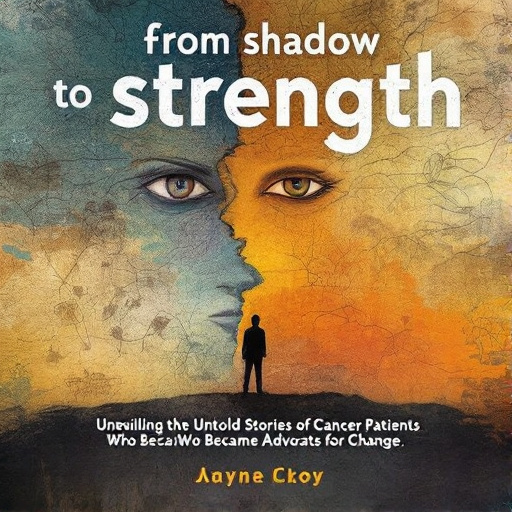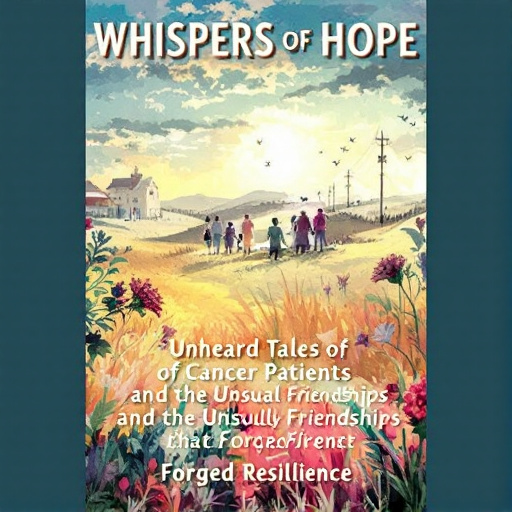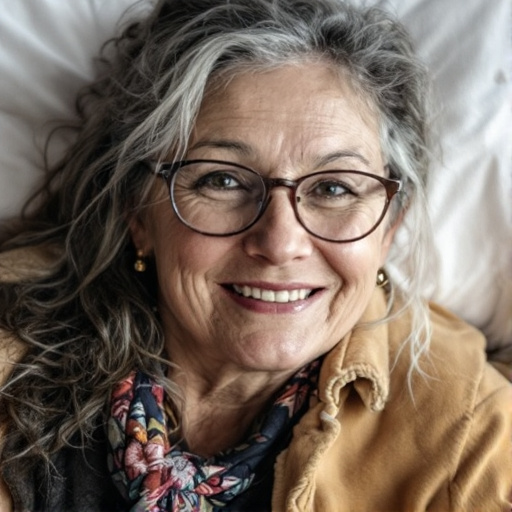Featured Articles
- 12 Pivotal Moments in Cancer Patients’ Lives That Shaped Unconventional Paths to Recovery
- Beyond the Diagnosis: The Unseen Impact of Cancer on Relationships and Social Dynamics
- Finding Light in the Shadows: Uncommon Spiritual Journeys of Cancer Survivors
- From Shadow to Strength: Unveiling the Untold Stories of Cancer Patients Who Became Advocates for Change
- Top 6 Wearable Tech Devices Revolutionizing Comfort and Support for Cancer Patients in Recent Years
Finding Light in the Shadows: Uncommon Spiritual Journeys of Cancer Survivors
Finding Light in the Shadows: Uncommon Spiritual Journeys of Cancer Survivors
In the face of adversity, cancer survivors often embark on profound spiritual journeys that reshape their lives. This article explores those uncommon paths, illustrating how personal growth, resilience, and unexpected insights can emerge from the shadows of illness.
Awakening to New Perspectives: The Story of Emily
At just 35, Emily received her diagnosis of triple-negative breast cancer—a type notoriously aggressive and difficult to treat. She describes this experience as transformative, not only physically but spiritually. Initially, Emily was consumed by fear and dread, plunging into a dark emotional abyss. However, this challenging phase eventually catalyzed a significant shift in her outlook on life.
With support from her family and a strong will to survive, Emily began attending meditation classes and exploring spirituality in ways she had never considered before. “Cancer stripped everything away—my old beliefs, my misconceptions. I had to reconsider everything about how I live my life,” she reflects. As she embraced mindfulness, she developed a deeper connection with her surroundings, finding solace in nature and community.
The Role of Community in Spiritual Growth
A critical aspect of healing for many cancer survivors is the support network cultivated during their journey. According to the American Cancer Society, about 11 million Americans with a history of cancer were alive in 2020. Many of these individuals report finding a new sense of purpose and connection through group support—be it in therapy, survivorship workshops, or online forums.
These interactions often lead to an awakening of compassion and understanding, both for oneself and for others navigating similar struggles. This sense of community and shared experience can amplify one's spiritual growth, reinforcing the belief that we are not alone in our pain.
The Humor in Healing: Leonard's Journey
Meet Leonard, a 68-year-old retired teacher who approached his cancer diagnosis with a unique blend of humor and optimism. “I never thought I’d join the cancer club, but here I am, a card-carrying member,” he jokes. His lighthearted attitude served not just as a coping mechanism but as a source of inspiration for those around him.
During his chemotherapy sessions, Leonard took it upon himself to entertain fellow patients, recounting stories from his teaching days and even dressing up in funny costumes. “Laughter is the best medicine,” he preached, drawing from both his experience and basic statistics that indicate laughter can boost immune function and relieve stress.
Transcending Suffering Through Art: A Case Study
For some cancer survivors, art provides a profound means of expression and connection to their spiritual side. Take the case of Clara, a professional dancer, who discovered that painting offered an emotional outlet she had long overlooked. After her recovery from leukemia, Clara poured her heart into canvas, exploring themes of resilience and rebirth.
Clara's work went on to be featured in multiple exhibitions, even raising funds for cancer research in the process. She asserts, “Each brushstroke was a way to communicate feelings I didn’t have the words for. It became a spiritual ritual.” This artistic expression empowered Clara to reclaim her identity, make sense of her trauma, and connect with a larger community of artists and survivors.
Finding Faith Beyond Fear: The Transformation of Mark
In stark contrast to Emily and Leonard's experiences, Mark, a 47-year-old engineer, had always found solace in science. When faced with a stage-4 diagnosis, he felt his world unraveling. His faith in facts and logic was challenged against the emotional turmoil cancer brought into his life.
Initially dismissive of spirituality as ‘irrational’, Mark found himself attending a support group where stories of hope sparked something within. “I started to see that spirituality wasn’t just about believing in something beyond us—it was also about connecting with others and finding purpose amid suffering,” he recounts.
Research on Spirituality and Cancer Recovery
A growing body of research indicates that the spiritual beliefs of cancer patients can significantly impact their recovery process. For example, a review published in the journal *Cancer Nursing* noted that patients who engaged in spiritual practices often experienced improved emotions and reduced pain levels. Many survivors report that spirituality helps them find strength they never knew they had, fostering resilience as they face daunting challenges.
The Path of Service: Giving Back
Many survivors, after confronting their struggles, feel a compelling urge to help others traversing similar paths. Sarah, notably a 53-year-old breast cancer survivor, began volunteering with local organizations dedicated to cancer awareness and prevention. “I wanted to turn my pain into purpose,” she says.
Her journey into service not only strengthened her resolve but also renewed her spiritual identity. Sarah speaks of how helping others promotes a sense of interconnectedness—a realization that her suffering was not in vain but could inspire and uplift fellow survivors.
Embracing Uncertainty: The Spirituality of Surrender
One of the most daunting aspects of a cancer diagnosis is the inherent uncertainty that accompanies treatment and recovery. Navigating this uncertainty prompted Rachel, a 29-year-old yoga instructor, to explore the spirituality of surrender. After her diagnosis of ovarian cancer, she found herself grappling with fear, not just about illness but the unpredictability of life itself.
By practicing yoga and meditation, Rachel learned to accept that not everything is within her control. “Surrendering didn’t mean giving up; it meant finding peace in the chaos,” she explains. Embracing uncertainty became a powerful theme in her recovery journey—one that fostered a spiritual awakening she never anticipated.
Bridging Science and Spirituality
Interestingly, the unexpectedly symbiotic relationship between science and spirituality is another area where cancer survivors are forging new paths. Emerging fields like psychology and psychoneuroimmunology explore how our mental states impact physical health, often validating the journeys of those embracing spirituality.
Many survivors find that a blend of traditional medicine and spiritual practices—a holistic approach—is the key to recovery. Such integration allows them to navigate challenges while remaining grounded in scientific understanding. As they reconcile these realms, they often discover a holistic pathway that nourishes both body and soul.
Concluding Reflections
The journeys of cancer survivors showcase remarkable narratives of resilience and spiritual evolution. From Leonard's contagious humor to Emily's mindful awakenings, these experiences underscore how adversity can lead to a deeper understanding of one’s self and life’s purpose.
As Rachel and Clara have demonstrated, embracing creativity, community, and compassion can illuminate even the darkest of paths. Each story reinforces an essential truth: cancer does not solely define one’s narrative. Instead, it can lead to an awakening, a connection, and a renewal of spirit that transforms shadows into light.
For anyone facing their own challenges, remember that your journey is as individual as you are—filled nonetheless with the potential for growth, love, and light. In the shadows, many continue to find their way toward the light, becoming beacons of hope and inspiration for all who follow.




